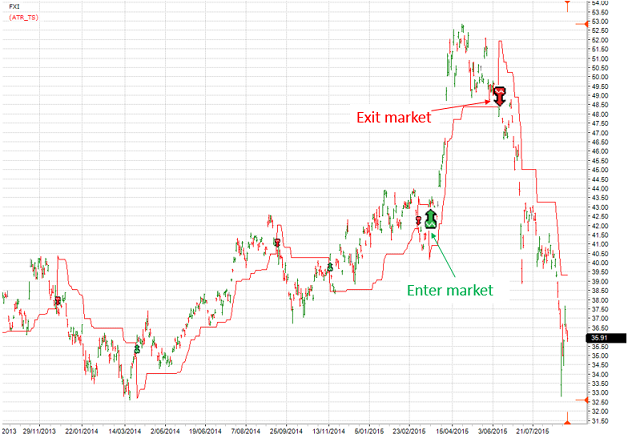Much has been made lately of the impact the Chinese economy is now having on the total global economy and the ramifications any slowdown in China will have on global growth, and global equity markets.
We have seen in recent weeks just how nervous and volatile global equity markets are in relation to the whole China story. Markets around the world have been making massive moves on the back of any news out of China.
The press has been awash with stories about the apparent slowing growth of the Chinese economy, the stimulus measures being undertaken by the Chinese government including a cut in interest rates and changes to the method used to value the Chinese currency against the US dollar, decreasing demand for base commodities as manufacturing slows, and the list goes on.
The amount of news being written and reported about China has reached a crescendo and has been dominating the newspapers, broker research reports, internet chat rooms and newsletters and trading screens around the globe. All of this news has had a negative effect on equity markets – in relation to falling prices and a big increase in volatility, reflecting just how uncertain investors are of the future direction of these markets. Is this just a minor, short term correction or could it be the start of a prolonged bear market?
There are, as always, two sides to the stories doing the rounds. On one side are the bears, calling a major market shake up as the global economy slows in response to slowing government stimulus measures and a tightening Chinese economy. On the other are the bulls, seeing this as a correction and a great buying opportunity as China ‘adjusts’ to becoming a more market orientated economy.
As a medium to long-term investor, my main aim is to protect capital during these volatile periods of uncertainty that the market is subject to every so often. It is why at Share Wealth Systems we develop and use systems to help grow our capital during up-trending markets, and protect our capital by exiting the down trending, poor performing markets and waiting patiently in cash. This methodology also means that by following the rules of the system being used, we are for all intents and purposes able to ignore all this “noise” that is constantly generated by the press, and simply follow the rules of our system. In doing so, we can become observers of the news rather than victims of it.
The chart below shows the SPA3ETF strategy applied to the FXI ETF – an ETF of the Chinese stock market, based on 50 large cap Chinese stocks traded on the Hong Kong Stock Exchange. Anyone seeking exposure to the Chinese stock market can utilise the FXI ETF. From the chart you can clearly see the buy and sell signals generated by the SPA3ETF methodology, indicating the times to be in the market and the times to exit this market and wait for the next buy signal.

Once again this reinforces the main point of last week’s post – by following the rules of a mechanical system we are able to enter and exit positions based on a system with solid results and proven performance. This will not only enhance our overall investing performance, but also protect our capital during market downturns. It will also significantly reduce the stress and emotional rollercoaster often experienced by investors and traders who lack the knowledge and understanding of this concept and who choose to make their investment decisions based on news, opinion and other market ‘noise’.


